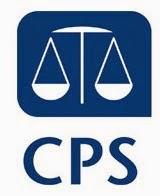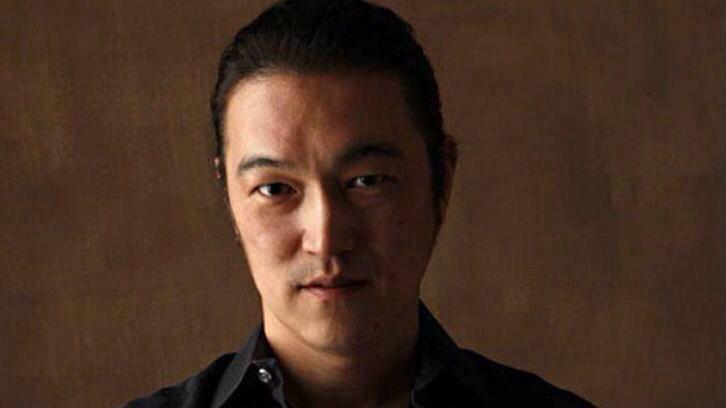Graeme Demianyk @GraemeDemianyk on Twitter: "Hugh Grant given chance to have a nice long moan about newspapers on #r4today as scoops by Guardian, Sun and Telegraph dominate bulletins."
Peter Wright, editor emeritus, Associated Newspapers, in a letter to the Guardian: "[Hugh] Grant’s damascene conversion to the cause of freedom of expression is of course welcome. But perhaps his next campaign could be against the appalling royal charter, which politicians are trying to impose on all journalists, and the oppressive, discriminatory exemplary damages which will enforce it – both measures backed by statute. Ironically, where Hugh and his chums can justly claim credit is that they really did write the royal charter. Indeed it is as a result of their actions that the police and other bodies which should know better think it’s open season to undermine Britain’s free press. That is one of the Leveson’s most depressing legacies."
John Cleese on the press at a Hacked Off rally, as reported by PA and Press Gazette: "Of course they want to regulate themselves, we'd all like to regulate ourselves wouldn't we? Builders, accountants, murderers, they'd all like to regulate themselves. The murderers would make a very good case - they'd say we murdered a lot of people, we know people who have murdered people. We really are best qualified to regulate ..."
Peter Wright, editor emeritus, Associated Newspapers, in a letter to the Guardian: "[Hugh] Grant’s damascene conversion to the cause of freedom of expression is of course welcome. But perhaps his next campaign could be against the appalling royal charter, which politicians are trying to impose on all journalists, and the oppressive, discriminatory exemplary damages which will enforce it – both measures backed by statute. Ironically, where Hugh and his chums can justly claim credit is that they really did write the royal charter. Indeed it is as a result of their actions that the police and other bodies which should know better think it’s open season to undermine Britain’s free press. That is one of the Leveson’s most depressing legacies."
 |
| John Cleese pictured in the Independent |
Labour Party deputy leader Harriet Harman at the same rally: "We are absolutely committed to what Leveson proposed and we do not think that business as usual is acceptable."
The NUJ in a statement: "The union wants to see any new ethical guidelines introduced at the Telegraph newspaper in relation to advertising and journalistic ethics to be meaningful and include a conscience clause for journalists. Journalists need to be protected and enabled to do the job they came into the industry to do without fear or favour, regardless of ownership."
Chris Frost, chair of the NUJ ethics council: “We welcome proposed changes to stop using RIPA to spy on journalists – we are very pleased everyone now agrees on this principle but as always the devil will be in the detail and so we urge the government to provide that detail now and then allow for a full and proper democratic debate amongst politicians, industry and civil society about the changes they intend to propose.”
Roy Mincoff, NUJ legal officer: "Under the Police and Criminal Evidence Act journalists must be notified by the authorities of an application to access their material and sources and have the ability to object, a right of hearing before a judge and the possibility of an appeal. The protections for journalists’ data under RIPA must be no less than that provided by PACE. To continue to allow the authorities to access journalists’ data and therefore sources will have a serious chilling effect on those who would otherwise reveal corruption, crime, abuse and wrongdoing by public and private bodies. Journalists are the public watchdog, with a duty to inform the public. The public has a right to be informed."
Roy Greenslade on his MediaGuardian blog on the Telegraph/Dispatches sting on MPs: "Leaving aside whether or not the MPs breached parliamentary rules, the way they spoke about themselves while being covertly filmed was justification enough for its undercover sting. They were shown to be using their positions in order to grasp money, so the public interest was obvious."
alan rusbridger @arusbridger on Twitter: "Struggling to think of any paper in recent times running something as desperate as this."
Piers Morgan @piersmorgan on Twitter: "Fleet Street is now into the machine-gun phase of its Reservoir Dogs cycle. This won't end well...."
Stig Abell @StigAbell on Twitter: "Just seen that the Telegraph put their despicable story on the front page. A paper being run by the woefully inadequate."
Janine Gibson @janinegibson on Twitter: "Silly revenge pieces about the Guardian are one thing, but that hit on the Times has come from a very dark place indeed."
The Observer: "In every business there’s pressure and scope for tragedy. But to equate these deaths with the decision – the commercial decision – to go easy on a big bank in trouble is gross far beyond any Fleet Street club. It demeans those who wrote it and those who ordered it. It will not be forgotten, or easily forgiven."
Peter Preston in The Observer: "The simplest question at the heart of the Telegraph’s HSBC shambles – and subsequent vileness – is also the one that matters most. Why on Earth was Peter Oborne, doughty political columnist, trooping back and forth to the chief executive’s office complaining about black holes and white flags? What had Murdoch MacLennan got to do with soft-pedalled coverage and cowardly retreats? Where was the stalwart soul who’s supposed to stand on the frontline defending journalism’s values? Where was the editor?"
Owen Jones in the Guardian: "Peter Oborne, a man of integrity and courage, has done us a huge service. With the disappearance of secure journalism jobs, most journalists can simply not speak out about journalistic practices without permanently banishing themselves from the industry."
Grey Cardigan on TheSpinAlley remembers being forced by a publisher to drop a negative restaurant review: "I was understandably furious, seeing such interference as a breach of a sacred code. I argued the toss for several days, right up until the point that the review should have gone to print. I was then informed that if I didn’t drop it, he’d have the page replaced by our production department. I was outranked and outflanked. There was only one thing left to do – resign on principle. Ten years earlier I would have done it. But I still had a big mortgage to pay off and there weren’t many other jobs going out there. To my eternal shame, I swallowed my pride and looked the other way as the dirty deed was done. I regretted it then and I regret it now."
Financial Times news report on the Barclay brothers: "Forbes estimates their joint wealth at $5.3bn. 'It’s hard to work out why they’re so desperate to extract value from the newspaper,' said one former employee."
Nick Cohen on Twitter: "Best line in Guardian editor hustings from @janinegibson on the Telegraph "You can only sell your integrity once". (Think I'll steal it)
Chris Frost, chair of the NUJ ethics council: “We welcome proposed changes to stop using RIPA to spy on journalists – we are very pleased everyone now agrees on this principle but as always the devil will be in the detail and so we urge the government to provide that detail now and then allow for a full and proper democratic debate amongst politicians, industry and civil society about the changes they intend to propose.”
Roy Mincoff, NUJ legal officer: "Under the Police and Criminal Evidence Act journalists must be notified by the authorities of an application to access their material and sources and have the ability to object, a right of hearing before a judge and the possibility of an appeal. The protections for journalists’ data under RIPA must be no less than that provided by PACE. To continue to allow the authorities to access journalists’ data and therefore sources will have a serious chilling effect on those who would otherwise reveal corruption, crime, abuse and wrongdoing by public and private bodies. Journalists are the public watchdog, with a duty to inform the public. The public has a right to be informed."
Kelvin MacKenzie in the Financial Times: “Rupert would rather cut his right leg off than support Ukip at the next election.”
Roy Greenslade on his MediaGuardian blog on the Telegraph/Dispatches sting on MPs: "Leaving aside whether or not the MPs breached parliamentary rules, the way they spoke about themselves while being covertly filmed was justification enough for its undercover sting. They were shown to be using their positions in order to grasp money, so the public interest was obvious."
Piers Morgan @piersmorgan on Twitter: "Fleet Street is now into the machine-gun phase of its Reservoir Dogs cycle. This won't end well...."
Stig Abell @StigAbell on Twitter: "Just seen that the Telegraph put their despicable story on the front page. A paper being run by the woefully inadequate."
Janine Gibson @janinegibson on Twitter: "Silly revenge pieces about the Guardian are one thing, but that hit on the Times has come from a very dark place indeed."
The Observer: "In every business there’s pressure and scope for tragedy. But to equate these deaths with the decision – the commercial decision – to go easy on a big bank in trouble is gross far beyond any Fleet Street club. It demeans those who wrote it and those who ordered it. It will not be forgotten, or easily forgiven."
Peter Preston in The Observer: "The simplest question at the heart of the Telegraph’s HSBC shambles – and subsequent vileness – is also the one that matters most. Why on Earth was Peter Oborne, doughty political columnist, trooping back and forth to the chief executive’s office complaining about black holes and white flags? What had Murdoch MacLennan got to do with soft-pedalled coverage and cowardly retreats? Where was the stalwart soul who’s supposed to stand on the frontline defending journalism’s values? Where was the editor?"
Owen Jones in the Guardian: "Peter Oborne, a man of integrity and courage, has done us a huge service. With the disappearance of secure journalism jobs, most journalists can simply not speak out about journalistic practices without permanently banishing themselves from the industry."
Grey Cardigan on TheSpinAlley remembers being forced by a publisher to drop a negative restaurant review: "I was understandably furious, seeing such interference as a breach of a sacred code. I argued the toss for several days, right up until the point that the review should have gone to print. I was then informed that if I didn’t drop it, he’d have the page replaced by our production department. I was outranked and outflanked. There was only one thing left to do – resign on principle. Ten years earlier I would have done it. But I still had a big mortgage to pay off and there weren’t many other jobs going out there. To my eternal shame, I swallowed my pride and looked the other way as the dirty deed was done. I regretted it then and I regret it now."
Financial Times news report on the Barclay brothers: "Forbes estimates their joint wealth at $5.3bn. 'It’s hard to work out why they’re so desperate to extract value from the newspaper,' said one former employee."
Nick Cohen on Twitter: "Best line in Guardian editor hustings from @janinegibson on the Telegraph "You can only sell your integrity once". (Think I'll steal it)










































